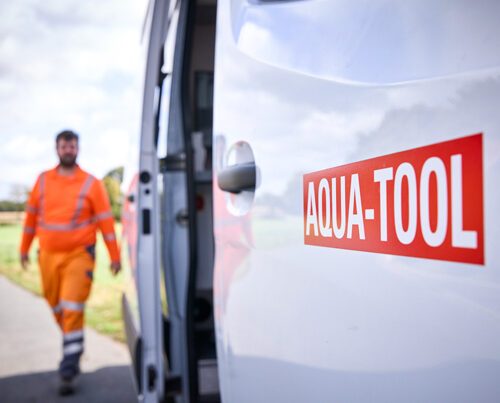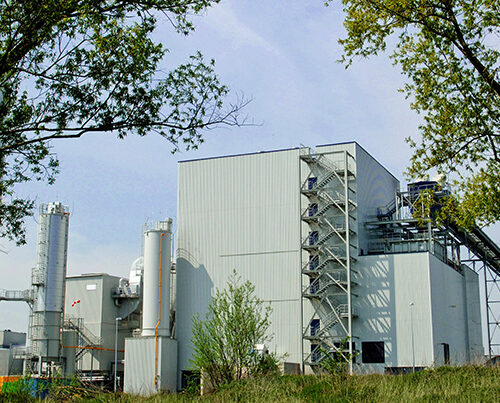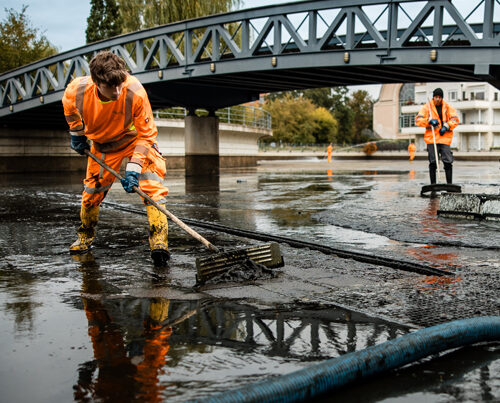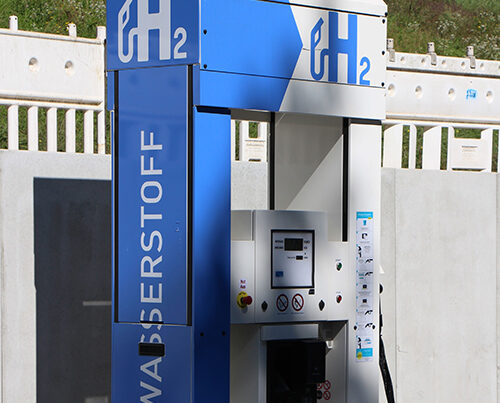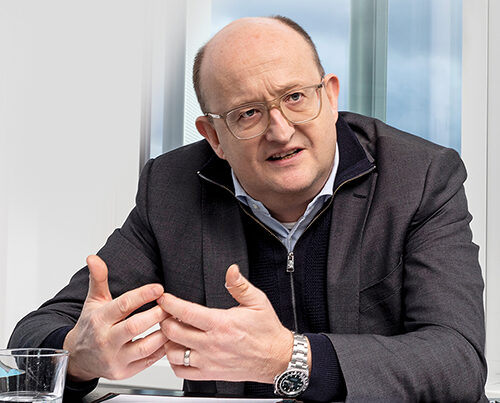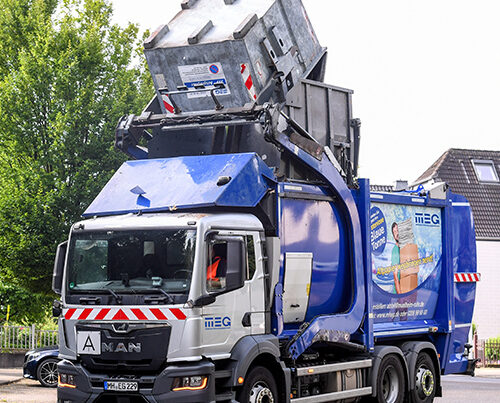Meadows and ploughed fields in the background, a fire station and businesses close by and a ring road visible along the edge of the Westphalian Lowlands: this is where the Versmold household waste recycling centre (HWRC) is located on Rothenfelder Straße just a few minutes’ drive from the city centre – and one of just a handful of HWRCs in Germany that offers a free app and digital reservation service. The City of Versmold and the operator REMONDIS have introduced a system here that considerably improves local services for those living in the town.
So how does the digital HWRC work?
It really is simple for local inhabitants to use a digital household waste recycling centre: anyone wishing to use the service – like the one being offered in Versmold – must just download the MAEX app provided by REMONDIS Digital Services GmbH onto their smartphone, set up an account and choose their time slot. That is all there is to it. They can then go to the HWRC at their chosen time, open the gate to the recycling centre using their app and Bluetooth, drive up to the clearly signed skips and containers – in this particular case via a ramp – and then unload their paper, timber, bulky waste and other recyclable materials. The whole process comes to an end at the exit when the gate opens with the help of a buzzer or an induction loop. That’s what digitisation looks like in 2025!
A very positive response
Karsten Piechowiak, employee at the recycling centre in Versmold, is delighted with this modern and contemporary service at the HWRC. The uptake has been great: “The response from Versmold’s local residents has been really good,” he said, taking stock of this new service. The long queues that used to build up are effectively a thing of the past and the local residents are clearly far happier with the HWRC’s offering. Conventional HWRCs have set opening hours and generally close at 5pm. A time that is often far too early for many local inhabitants.
This digital offering allows the recycling centre to be open for business at additional times without having to bring in extra staff – an important aspect in times where personnel resources tend to be scarce. Pia Krüger, a digital solutions expert and MAEX project manager at REMONDIS Digital Services GmbH in Hamburg, also underlined just how important this is: “It is, of course, essential nowadays to digitise processes wherever it makes sense to do so – especially as it is getting more and more difficult to find new staff.”
“The response from Versmold’s local residents has been really good.”
She revealed that MAEX was created using ‘design thinking’ – a creative technology that is based on users’ needs. A Versmold resident visiting the centre to unload some materials from his car also confirmed that the app makes life easier for those using it: “The most important thing for me is that I can book an appointment without delay and be sure that I can hand over my recyclables without having to wait in a queue – that’s super.”
Security and safety are also high up on the HWRC’s list of priorities, alongside service and convenience. Good lighting, CCTV and clear signage all ensure that local residents have a successful and pleasant trip to the HWRC. By the way: the MAEX app can be adapted to meet the individual needs of a town or region so that all recycling centres can add it to their range of services – the layout and individual services can also be tailored to reflect their requirements.
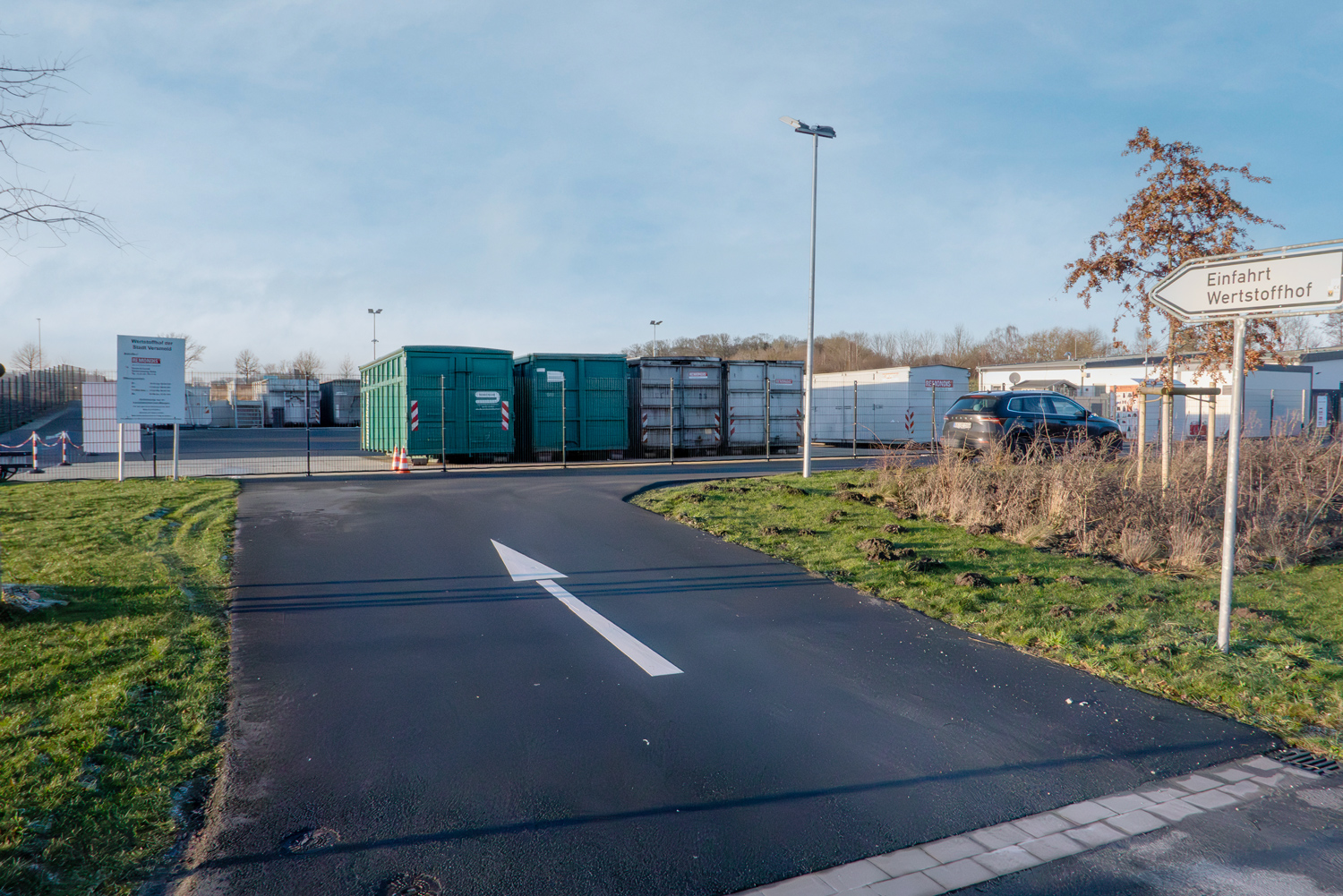
With the digital service, recyclables can be handed in outside of regular opening hours

Karsten Piechowiak, employee at the recycling centre in Versmold, is convinced of the self-service
The difference between urban and rural areas – self-service will become a part of smart cities
Versmold is a small town that is home to 22,000+ inhabitants and located in a rural region. So is it possible for this digital service to work in cities that have hundreds of thousands of local residents? HWRCs in large towns have far more users and more extensive requirements which means it could be more difficult to set up a digital service that the inhabitants are happy to use. Essen is a large city in Germany’s Ruhr region with just under 590,000 inhabitants. It decided to take this step – and it is very pleased with the response of its local inhabitants to its self-service recycling centre on Langenbergstraße.
Residents living in Essen’s south-east district of Überruhr-Holthausen have been able to hand in their recyclables to their recycling centre after closing hours until 10pm since September 2024: “More than 1,130 residents had signed up to the service within just one month – that well exceeded our expectations,” said Ulrich W. Husemann, managing director of Entsorgungsbetriebe Essen (EBE). “All in all, 454 appointments were booked via the MAEX app by registered users in that first month – which made us one of the most used self-service HWRCs in the country!” Working together with its partner REMONDIS Digital Services, EBE is the first waste management company in the whole of the Ruhr region and the first large city in the German state of North Rhine-Westphalia to implement such a digital project and introduce a self-service household waste recycling centre.
“No other towns using this app-based system have managed to achieve such good results,” EBE managing director Karsten Woidtke added. “We had expected there to be a good response to the app as it really does improve people’s lives – especially working people as they now have a more flexible system to hand in their recyclables and are no longer limited to the centre’s opening hours,” Woidtke continued. “It is, though, surprising and really encouraging that there has been such a great response to this self-service system!”
EBE are intending to look into whether this successful app can be introduced into other recycling centres and drop-off points around Essen. No matter whether it be Versmold or Essen: they are showing how digitisation can be implemented for everyday tasks – making life easier for those living there and turning small and large towns into smart cities.
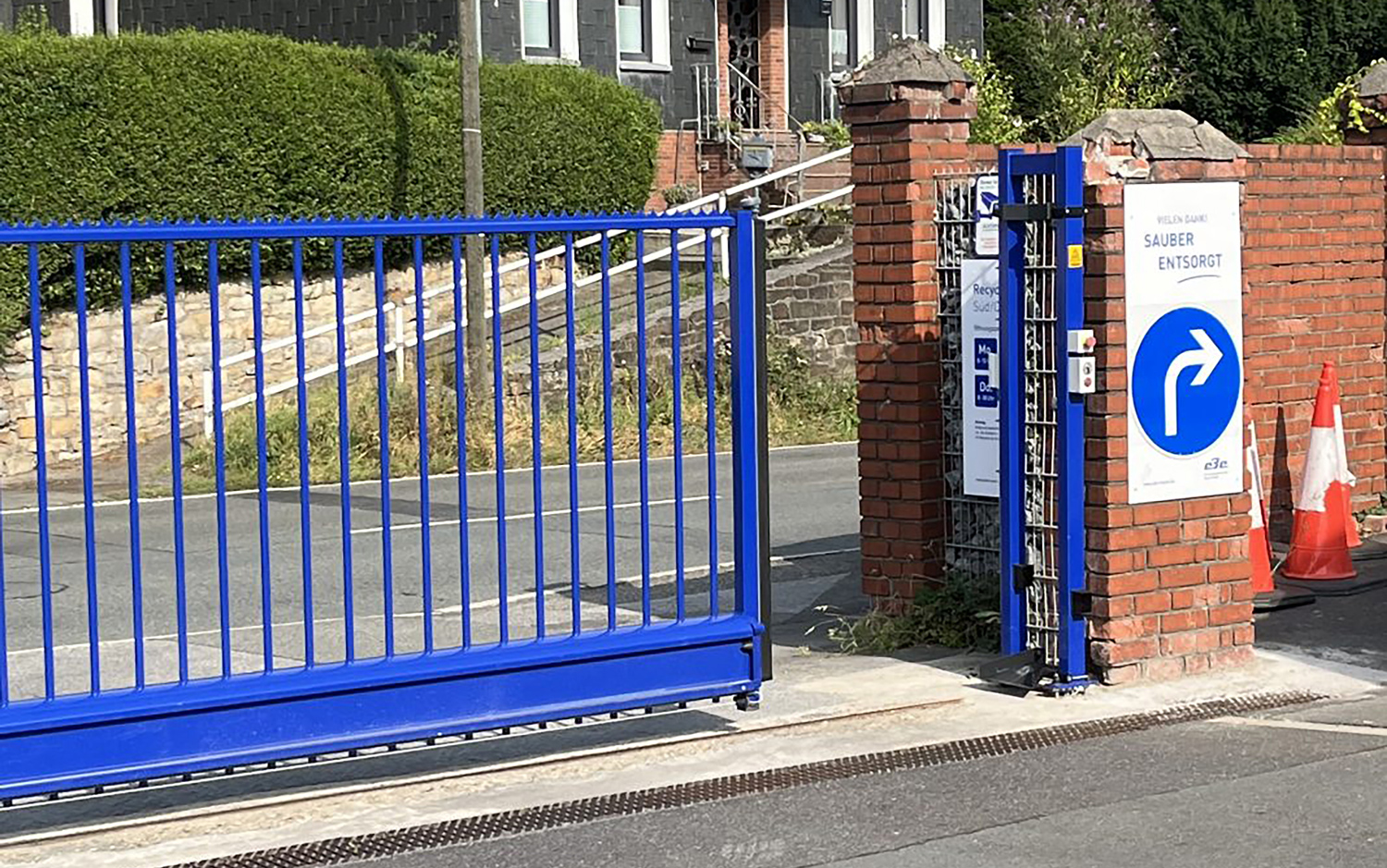
Self-service in the big city: the recycling station in Essen shows how it’s done
Image credits: images 1 – 4: © REMONDIS; image 1, 5: © EBE







